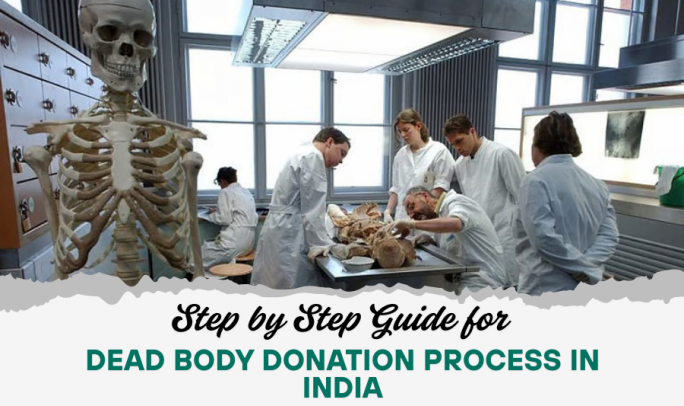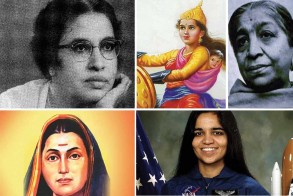Lastjourney Blog
Procedure to Donate Body After Death in India

 Table of Contents
Table of Contents- What is Body Donation?
- What is the Procedure for Dead Body Donation?
- Who is Eligible for Body Donation?
- What is the Time Limit for Body Donation After Death?
- Where Can You Register for Body Donation in India?
- Documents Required for Body Donation
- Emotional & Ethical Considerations
- Benefits of Donating Your Body to Science
Donating your body to science is one of the most noble and impactful contributions a person can make after death. Body donation plays a vital role in advancing medical education, surgical training, and scientific research. For families seeking to create meaning beyond loss, understanding the procedure to donate body after death is the first step toward planning a legacy of service.
In this blog, we’ll walk you through the complete body donation process in India, eligibility criteria, documentation, and how to register for cadaver donation with recognized institutions.
What is Body Donation?
Body donation, also known as cadaver donation, is the voluntary act of donating one’s body after death for medical education, anatomical study, and research purposes. Medical colleges and research institutes use donated bodies to train future doctors, practice surgical procedures, and study human anatomy in a real-life context.
Unlike organ donation, which benefits living patients, body donation helps society at large by supporting the next generation of healthcare professionals.
What is the Procedure for Dead Body Donation?
Here’s the general procedure to donate body after death:
1. Pre-Registration (Preferred)
-
The individual (or family) contacts a government-registered medical college or NGO.
-
A body donation consent form is filled and submitted during the person’s lifetime.
-
Institutions often provide a donor ID card after registration.
2. Intimation After Death
-
Once the donor passes away, the family must inform the medical college immediately—ideally within 4–6 hours.
-
The hospital will dispatch an ambulance or medical team to collect the body.
3. Body Collection & Documentation
-
On-site paperwork is completed.
-
The body is transported to the institution.
-
A certificate of appreciation is usually issued to the family in recognition of the donation.
Note: Even if someone hasn’t pre-registered, family members may donate the body after death by contacting a local medical college and fulfilling consent formalities.
Who is Eligible for Body Donation?
The general eligibility criteria for body donation in India are:
✅ The deceased must be above 18 years of age
✅ The body must be intact and in good condition
✅ No major infectious diseases (like HIV, hepatitis, or tuberculosis)
✅ The body must not be involved in any legal case, autopsy, or unnatural death
Final acceptance is always at the discretion of the receiving institution based on medical and research requirements.
What is the Time Limit for Body Donation After Death?
Time is critical. The body should ideally be handed over to the medical institution within 6 to 8 hours of death.
Quick preservation helps ensure the anatomical integrity of the cadaver for educational use. Delays may lead to the body being declined due to decomposition.
To ensure timely action:
-
Keep the donor registration details handy
-
Store the body in a cool environment (if possible)
-
Inform the institution as soon as death is confirmed
Where Can You Register for Body Donation in India?
Here are some reputable institutions that accept cadaver donations:
✅ Delhi
-
AIIMS (All India Institute of Medical Sciences)
-
Maulana Azad Medical College
-
Lady Hardinge Medical College
✅ Mumbai
-
KEM Hospital
-
Grant Medical College
-
Tata Memorial Hospital
✅ Bengaluru
-
St. John’s Medical College
-
Bangalore Medical College
✅ Chennai
-
Madras Medical College
-
Sri Ramachandra Medical College
✅ Pan-India NGOs
-
Dadhichi Deh Dan Samiti
-
MOHAN Foundation
-
Rotary Body Donation Programs (State-level)
Always call the institution or NGO in advance to check their registration and donation process.
Documents Required for Body Donation
To complete the cadaver donation process, you’ll typically need:
-
Completed Body Donation Form (with donor/family signature)
-
Aadhaar Card or Valid ID Proof of the donor
-
Death Certificate issued by a hospital or medical authority
-
Consent Letter (in cases where family initiates posthumous donation)
-
Donor Card or Pre-registration slip (if pre-registered)
Most institutions offer free forms online or at their anatomy department.
Emotional & Ethical Considerations
-
Body donation is a non-commercial, voluntary act—no money is exchanged.
-
It is viewed as a gift to science and humanity.
-
Families are advised to discuss the decision in advance to avoid confusion.
-
Memorial rituals (Chautha, Tehravin) can still be performed respectfully before donation.
Benefits of Donating Your Body to Science
Here’s why more people are choosing to donate their bodies to science:
✔ Societal Contribution
Your body helps train hundreds of medical students and professionals.
✔ Dignified Legacy
It’s a selfless, spiritual gesture that continues to serve even after death.
✔ Zero Cremation Cost
Institutions usually handle cremation after study completion, easing financial and logistical pressure on families.
✔ Promotes Awareness
Encourages others to consider non-traditional, purposeful funeral alternatives.
The process of donating your body to science is a powerful way to give back. In a country like India, where medical education is expanding rapidly, body donation can bridge the gap between learning and life-saving practice.
If you wish to register yourself or a loved one, reach out to a local medical institution or connect with NGOs actively supporting this noble cause.
Your email address will not be published. Required fields are marked *












